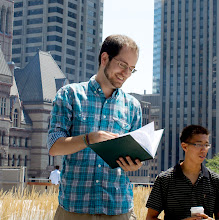Things are done differently on Pelee Island
- May 20, 2006, The Observer
That’s Pelee
Maybe it is because it’s the southernmost inhabited spot in the country. Or maybe it’s the people who choose to live there. Whatever the reason, things are different on Pelee. On a train ride to Ottawa trip last week to endorse Elizabeth May for Green Party leader, I picked up a bottle of win for a friend I was visiting. The Riesling Dry had an image of a Great Egret on the bottle, and it reminded me of what I did one year ago, the same week.
A week-long excursion to this Canadian island found me wondering if I hadn’t left the country. I was surrounded by open lands, open waters, open skies, and some very friendly folk. Pelee Island has more than its fair share of ecological wisdom, alternative energies, and sustainable farming practices, for a land of 250 permanent residents. Perhaps these exist because of the island’s biodiversity, high number of endangered species, and fascinating bird migrations. In fact, a great number of humans – including many from Sarnia-Lambton – migrate to the island each May to spot orioles, warblers, sandpipers, swallows, ducks and herons. This long weekend, you might consider a walk through one of Lambton Country’s natural areas to see what you can spot.
In January of last year I attended the Guelph Organic Conference where I met Colin, an organic farmer living and working on Pelee Island. Colin and wife Jennie were typical of the new farmer: young, well educated, and ecologically conscious. Colin was advertising Meadowlark Organic Farm to students who might be interested in volunteering on an island for a week or two, with room and board supplied. I was interested.
Those attending the conference believed in certain principles of sustainable agriculture, which I learned during my weekend there. Grow and buy local food! There were said to be multiple benefits for everyone in the community, and ‘food localism’ was even being promoted by public health officials. Pay attention to the soil. Your plant gets all its nutrients from the soil, so any problem must be resolved at that level. Sustainability. It means permanence, or a way of farming that is possible far into the future. Meadowlark practiced these principles.
I took the ferry from Leamington to the West Dock on the island. It was slow and quiet; a taste of things to come. On my way north from the dock by bicycle, a car passed every several minutes on the island’s main drag. A Great Egret glided alongside me as other birds sang. My whole week happened like this, viewing fascinating birds, butterflies, dragonflies, turtles, frogs, toads, snakes, rabbits, and muskrat, not to mention interesting landscapes and architecture. The pace of life was taken down a notch to a level where enjoyment of simpler things was possible.
Work on the farm was very educational. Without the use of chemicals, farmers like Colin and Jennie have to use their minds to solve problems like encountering thistle, a fast growing weed. Methods used on the crops included biological control, which meant attracting beneficial insects with flowers. Companion cropping was planting the right crops close together to get mutual benefits. A similar approach can be used to get lawns off chemicals, where consideration of the soil and pesticide alternatives is important.
People purchase local and organic food because they perceive it to be healthier, to have less impact on ecosystems and because it supports farmers. With farmers often making negative incomes and their anger being demonstrated at recent protests, a local distribution system is often a better means of making a profit. Whatever the main reason, the growth rate in organic food sales is at 20% per year, so consumers are making the choice. And because of it, young families like Colin and Jennie’s will have a more stable ecological and economic environment.
--------------------------
Darcy Higgins is a native of Sarnia who is currently completing a degree in Environmental Studies. He can be reached by e-mail at darcyhiggins@gmail.com


0 Comments:
Post a Comment
<< Home